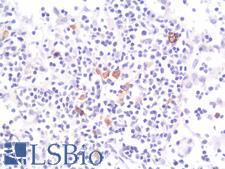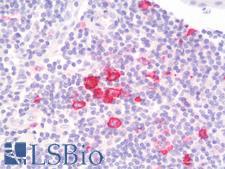Login
Registration enables users to use special features of this website, such as past
order histories, retained contact details for faster checkout, review submissions, and special promotions.
order histories, retained contact details for faster checkout, review submissions, and special promotions.
Forgot password?
Registration enables users to use special features of this website, such as past
order histories, retained contact details for faster checkout, review submissions, and special promotions.
order histories, retained contact details for faster checkout, review submissions, and special promotions.
Quick Order
Products
Antibodies
ELISA and Assay Kits
Research Areas
Infectious Disease
Resources
Purchasing
Reference Material
Contact Us
Location
Corporate Headquarters
Vector Laboratories, Inc.
6737 Mowry Ave
Newark, CA 94560
United States
Telephone Numbers
Customer Service: (800) 227-6666 / (650) 697-3600
Contact Us
Additional Contact Details
Login
Registration enables users to use special features of this website, such as past
order histories, retained contact details for faster checkout, review submissions, and special promotions.
order histories, retained contact details for faster checkout, review submissions, and special promotions.
Forgot password?
Registration enables users to use special features of this website, such as past
order histories, retained contact details for faster checkout, review submissions, and special promotions.
order histories, retained contact details for faster checkout, review submissions, and special promotions.
Quick Order
PathPlusTM CD30 Antibodies
CD30 is a transmembrane cytokine receptor expressed in the cell membranes of activated T cells, B cells at the edge of germinal centers, and some plasma cells. It is expressed in Reed-Sternberg cells in Hodgkin's lymphoma, as well as anaplastic large cell lymphomas and embryonal carcinoma. It is a positive regulator of apoptosis, and protects against autoimmunity. Overexpression causes constitutive expression of nuclear factor-KB, which is considered the molecular basis for the aberrant growth and cytokine expression observed in Hodgkin’s lymphoma. It is a target for the drug brentuximab vedotin.
References: Pierce et al. "Diagnostic, prognostic and therapeutic role of CD30 in lymphoma." Expert review of hematology 10.1 (2017): 29-37. https://www.ncbi.nlm.nih.gov/pubmed/27927047
2 PathPlusTM Antibodies


☰ Filters
Products
Antibodies
(2)
Type
Primary
(2)
Target
CD30
(2)
Reactivity
Human
(2)
Application
IHC-P
(2)
Host
rabbit
(1)
mouse
(1)
Product Group
PathPlus Cancer
(2)
PathPlus Cancer Pathology
(2)
Isotype
IgG
(1)
IgG1,k
(1)
Clonality
recombinant monoclonal rmc
(2)
Clone
Ki-1/1505R
(1)
rKi-1/779
(1)
Format
Unconjugated
(2)
Publications
No
(2)

Cancer Pathology
Cancer
CD30 Rabbit anti-Human Recombinant Monoclonal (Ki-1/1505R) Antibody
Human
IHC-P
Unconjugated
100 µg/$525

Cancer Pathology
Cancer
CD30 Mouse anti-Human Recombinant Monoclonal (rKi-1/779) Antibody
Human
IHC-P
Unconjugated
100 µg/$525
Viewing 1-2
of 2
product results











